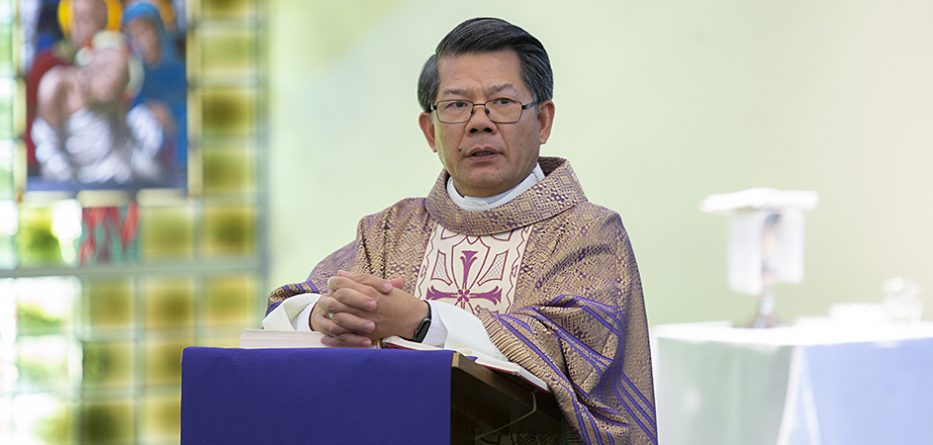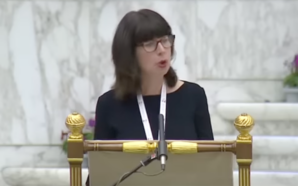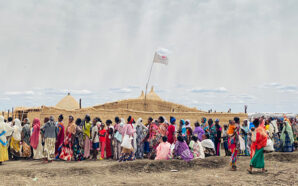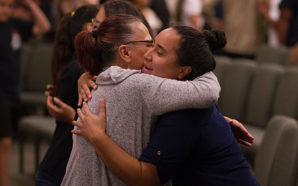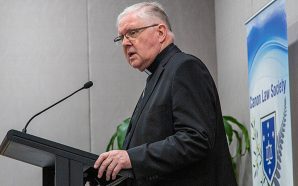Most Reverend Vincent Long Van Nguyen OFM Conv DD STL, Bishop of Parramatta
Homily for the Fourth Sunday of Lent (Laetare Sunday), Year A and the gathering of the Chapter of the Sisters of Mercy Parramatta.
Readings: 1 Samuel 16:1, 6-7, 10-13; Psalm 22(23); Ephesians 5:8-14; John 9:1-41
19 March 2023
Seeing beyond our prejudices and biases
It is an honour for me to join you for this time of reflection where we seek to renew our relationship with God, with our founding charism and all those ties which are fundamental to our lives.
It is so easy for us to turn inwards, or in the words of Pope Francis, to become self-referential when we face diminishment. We need to discern and discover where God is calling us beyond our fears. Instead of longing to return to the safety of the past, we need to grieve together for death, but also for institutional losses that blur their comprehension for what the future holds. Our own grief is a gateway to grace, not only for ourselves, but for our world.
We are greatly encouraged by the way Pope Francis is calling on us to be receptive to the newness of the Spirit and not to be smothered by the ashes of fear and concern in defence of the status quo. “We must not fear newness, we must not fear Christ, the new.”
Religious history is a journey into chaos, discovery and re-imagination writ large. You have known too well that there is never a time to settle into false securities: numbers, prestige and visibility of congregational influence etc… Discerning and living the creative power of the Spirit through the Paschal rhythm of life and death have been your strength.
Religious are pathfinders who venture into the untrodden. We are not settlers but pilgrims; not guardians of status quo, but explorers of what is possible. Religious are like the Aboriginal pioneers who refused to sit on the edges of the shrinking billabong. It’s in our DNA to go to where the river flows in order to explore new frontiers of engagement and new possibilities of solidarity. The Church and the world depend on us to lead them to new thresholds and crossroads where the God of the journey beckons.
Our pioneers were known to be good travellers. They explored new frontiers. It’s in their DNA to read the signs of the times and follow where the river flows. That kind of trailblazing spirit has characterised the best of religious men and women. We are not meant to be settlers. Religious are at their best in times of transition and crisis.
Our charism is being reborn in ways beyond the traditional structures of religious life. Perhaps the mighty river has not dried up into a billabong, but merely changed its course. Perhaps like Moses, we can point people to the promise land in the misty distance with a wisdom and certainty of ripe old age.
The Word of God this Fourth Sunday in Lent speaks of the unexpected ways with which the God of our ancestors breaks through the narrow human channels. In Jesus, we meet this same God who acts yet more decisively and definitively in favour of the poor and downtrodden.
In the first reading, the prophet Samuel was sent to the house of Jesse in Bethlehem, in order to anoint the future king of Israel. Samuel was not blind physically. However, like other able-bodied individuals, he had a few blind spots. He judged the children of Jesse, one after the other, according to his cultural assumptions and personal biases. To his total surprise, the one whom he deemed unworthy turned out to be the chosen of God. Samuel was taught a sobering lesson that day: “God does not see as man sees”. God’s way subverts human thinking.
It is a kind of sobering lesson that we all need to learn. We may be blessed with physical sight. But like Samuel, we need to have our eyes of faith wide opened; we need to expand our limited horizons so that we can see the way God wants us to see. How often our ingrained fears and biases prevent us from envisioning prophetically and acting boldly. We must be challenged as Samuel was, to see with new eye and to align with God’s vision.
This message is reinforced by the Gospel which is a story full of rich symbolism and profound spirituality. Like the woman at the well story last Sunday, the man born blind is a victim of fear, misunderstanding and prejudice. He is judged and condemned by others.
How often that is still the case even in our own days and in our own society! How often we blame victims for their own failures whether it is domestic violence, entrenched poverty, systemic oppression and intergenerational disadvantage. It is Jesus who shows us the way. He goes beyond the traditional explanation of blessings and curses. “He was born blind so that the works of God might be displayed in him”, Jesus declares.
The blind man was receptive to the gift of sight and enlightenment. He recognised Jesus first as a healer, then, a prophet and finally as Lord. His journey of transformation is a sharp contrast to the descent into blindness on the part of Jesus’ adversaries. They judged him a sinner, then rejected his testimony and finally expelled him for his faith in Jesus. We can detect a sense of irony in all of this. It is the fully sighted people who are guilty of ignorance, prejudice and hard-heartedness. The story makes it clear to us who has the gift of true vision. The story also gives us an insight into the experience of the predominantly Jewish Christian community who found themselves expelled from the synagogue.
Dear friends,
Whatever happens tomorrow, we cannot be an inward-looking group but being true to our founding spirit, that of boldness and vulnerable trust.
Pope Francis famously commented a passage from the Book of Revelation in which Jesus stands before the door and knocks. The Pope said: “Today, Christ is knocking from inside the Church and wants to get out.” He challenged us to think beyond the walls of the institution, because that is where people are looking for Christ, too, not just inside. We must not be an inward-looking and maintenance-focused people. Rather, we must be willing to be mission-oriented serving people where they are, including those wandering in the new Babylon, that is the “strange land” beyond the pews.
Let us renew our commitment to follow this way revealed to us in the example of Jesus. In the face of fear and stereotyping, let us be resolved to build a community of hospitality, compassion and solidarity, starting from those who are at the margins of our society. Like the blind man, may we be healed and made whole from the darkness of our fears and insecurities. May we be gifted with the new vision of faith that enables us to see and act according to the values of the Gospel. Let us pray that Christ open our eyes so we may see like him; our ears that we may hear like him and our hearts so we may love like him.




